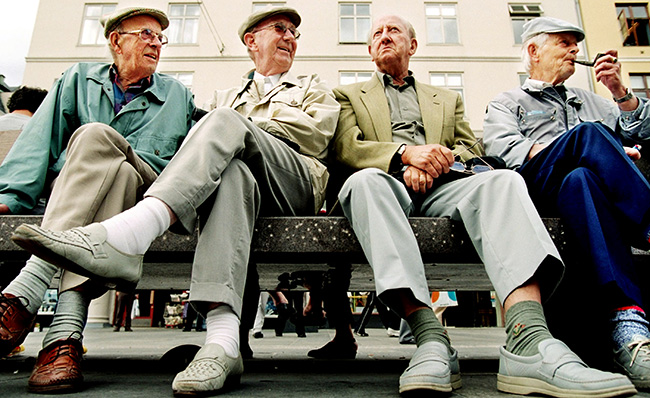 Thursday 14 December 2017 4:08pm
Thursday 14 December 2017 4:08pm
New research from the University of Otago Christchurch have found that one in five older people identify as feeling lonely, and the negative impact of this can worsen health conditions.
More than 15,000 frail elderly identified as being lonely according to a world-first study of 72,000 older New Zealanders. That equates to one in five older people.
The findings come from research on InterRai, a universal assessment of elderly living in the community who need home services or are being considered for entry into care. InterRai is led by the Ministry of Health and involves a one-and-a-half-hour assessment covering all aspects of an older person's life including the physical, psychological, cognitive, and social support and interaction. It records ethnic group and living circumstance.
The loneliness study was led by University of Otago, Christchurch, researchers Dr Hamish Jamieson and Dr Sally Keeling. It was recently published in the Australasian Journal on Ageing. The study was funded by a Government initiative to improve the lives of older people called the Ageing Well National Science Challenge.

Dr Hamish Jamieson, geriatrician and researcher at University of Otago Christchurch.
Dr Jamieson says he wanted to understand the burden of loneliness in the elderly because it is widely recognised as having a negative impact on health, well-being and mortality.
The study found:
- One in five people surveyed (21%) were lonely.
- The ethic group most likely to be lonely was Asian (23%).
- Pacific Islanders were the least lonely group (17%).
- The mean age of participants was 82.7 years.
- 61% were female
- 88.4% identified as European; 5.4% as Maori; 3.1% as Pasifika 2.3% as Asian and 0.8% as other
- Just over half lived with others (50.4%). Of those living with others, 31.7% lived with a spouse or partner only, and 10.9% lived with a child.
- European were most likely to live alone (52.4% of that ethnic group); Maori (38.1% of that group), Asian (18%) and Pasifika (15.6%)
- People from non-European ethnic groups were more concentrated in extended family arrangements, with 38.2% of Pasifika living with an adult child, 33% of Asians, and 8.6% of Europeans.
- Twice the proportion of older Asian people were lonely when living with others (15.7%) than living alone (7%)
Dr Jamieson says loneliness is well-recognised as having negative impacts on the lives of older people.
“Interactions with friends and neighbours are important and can help older people maintain their sense of independence and sustain the ability to look after themselves. In contrast, loneliness can make many health conditions worse, including pain depression, anxiety and respiratory conditions.”
Dr Jamieson says he thinks the high prevalence of loneliness reflects the increasing fragmentation of society.
“Many people are working long hours and travelling more. Anecdotally, there is a reduction in community networks and neighbourhoods. This is contributing to the high levels of loneliness reported in vulnerable older people,'' he says.
Dr Jamieson says it is important to have specific numbers around the problem of loneliness. This research gives provides that. The next study will quantify the direct impact on the health system of loneliness, such as hospital admissions.
“It is important to understand there are thousands of frail elderly in the community who are lonely. This message is even more important as Christmas is approaching.”
For more information, contact
Dr Hamish Jamieson
University of Otago, Christchurch
Tel: +64 21 811 070
A list of Otago experts available for media comment is available elsewhere on this website.
Electronic addresses (including email accounts, instant messaging services, or telephone accounts) published on this page are for the sole purpose of contact with the individuals concerned, in their capacity as officers, employees or students of the University of Otago, or their respective organisation. Publication of any such electronic address is not to be taken as consent to receive unsolicited commercial electronic messages by the address holder.
